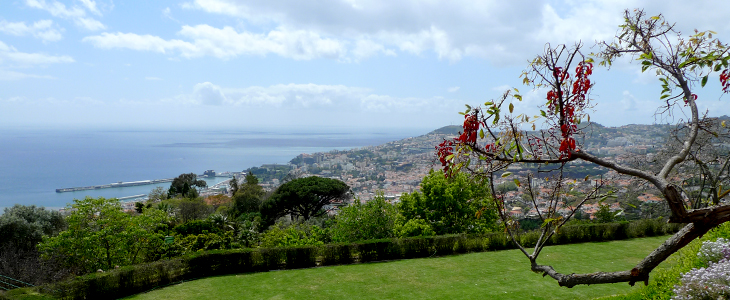Impact of Climate Change and Adaptation Measures
Spending some time on the beautiful island of Madeira, Autonomous region of Portugal and integral part of European Union, was a chance to examine how seriously EU is thinking about impact of Climate Change.
I stumbled upon this report produced for the purpose of providing material for the EU’s Climate- ADAPT platform, summarizing some of the findings of the Study on the Impact of Climate Change and Adaptation Measures in the Outermost Regions, (OR – Guadeloupe, Martinique, St Martin, Mayotte, French Guiana, La Réunion, Canary Islands, Azores and Madeira) of the EU are regions characterized by their remoteness, insularity, climate, terrain and richness of biodiversity as well as an economic dependence on a small number of products.

Expected climate impacts to the madeira Island include:
An increase in average temperatures – the IPCC AR4 (2007) climate scenarios predict a 1.9°C to 2.4°C increase in annual temperatures by the end of the century. The SIAM II project (Santos, Forbes and Moita, 2002) estimated a temperature increase of between 2oC to 3oC in Madeira, broadly consistent with the IPCC regional assessment; and a reduction in precipitation – a decrease in overall annual precipitation, characterised by a lower level of rainfall throughout autumn, winter and spring months, and a small increase in precipitation in the summer (Santos & Aguiar, 2006). It is estimated that the volume of water available annually for recharge of water resources will halve by the end of the century. The SIAM II project also projected a significant reduction (about 30%) in annual precipitation for Madeira. This is likely to have severe implications across the majority of economic sectors as well as human and environmental systems. In particular, it is likely to aggravate the problem of salt water intrusion already observed in wells located along the coast.
Current efforts are focused on research activities aimed at the development of a knowledge base. A number of research programmes are being supported by the European “Transnational Cooperation Programme Madeira-Açores-Canarias (MAC) 2007-2013”.
Some actions are being taken within Madeira which while not taken directly for climate change adaptation reasons, have the effect of improving CLIMATE RESILIENCE. For example, the port facilities at Funchal, Caniçal and Porto Novo on the island of Madeira have been recently improved.
Full report you can find here as an PDF document ![]()

Wow, really interesting. Water stress is going to come to Canada soon too due to climate change. A new thing for us all to cope with. Time to learn from those who are looking ahead and dealing with it now.